Have you ever noticed a strange noise in your ears, like a buzzing or high-pitched sound, but your doctor says it's not tinnitus?
You're not alone — and you're not imagining it.
As a hearing specialist, I often meet older adults who hear odd sounds in their ears. They might describe it as humming, ringing, or a soft hiss — and many are surprised to learn it's not actually tinnitus.
In this post, I'll explain what could be causing these sounds, what to do about them, and when it's time to take action. Whether you already wear hearing aids or are just starting to notice changes, this guide is for you.
Let's get started.
🚀 Navigate This Post
You may also be interested in:
- Pinched Nerves and Tinnitus - Is Your Neck Secretly Causing That Ear‑Ring?
- Low Frequency Tinnitus - Ears’ Deep Humming Driving You Crazy
- Diabetes and Tinnitus - Don’t Ignore This Buzzing Sound in Your Ears
Part 1: Understanding Noise in Ears That Isn't Tinnitus
Not every odd sound you hear in your ears is tinnitus. That may come as a surprise if you've done a quick Google search and landed in an ocean of tinnitus-related results. While tinnitus is a common condition, there are other reasons your ears might be making strange noises.
And trust me, I've seen them all — from high-pitched noise in ears not tinnitus after a long flight, to a persistent buzzing that turned out to be from earwax buildup pressing against the eardrum.
One of my patients, Margaret, 72, told me she had this gentle whistling in her left ear that only appeared when she lay down to rest. No hearing loss. No pain. Just that irritating sound. After checking her ears and reviewing her habits, we discovered that a narrow ear canal and mild age-related hearing changes were causing her brain to "fill in the blanks" with phantom sounds. A simple hearing aid helped rebalance her hearing, and that phantom noise vanished in days.
Let's now take a closer look at the most common causes of these ear noises — and why they happen even if it's not tinnitus.
1. Temporary Pressure Changes
Sometimes, what you're hearing is simply your ears adjusting to changes in pressure — whether it's from flying, climbing stairs, or even yawning. Your Eustachian tube, which helps balance pressure, may open or close unevenly, causing subtle popping or buzzing sensations.

Often, this resolves on its own — but if it lingers for days or causes discomfort, it's worth gently clearing the ears using safe techniques. (More on that in Part 2.)
2. Mild Hearing Decline with Age
Our hearing changes gradually over time. It doesn't always feel like "hearing loss" — instead, the brain starts trying to interpret incomplete signals. Sometimes, it fills in the gaps with buzzing noise in ears not tinnitus, or other phantom tones.
This doesn't mean you're losing your hearing overnight. But it might be time to take note of other subtle signs — like needing to turn up the TV, asking people to repeat themselves, or missing softer sounds.
3. Medication or Circulation-Related Sounds
Certain medications, especially those known as ototoxic drugs, can sometimes lead to temporary high-pitched noises in ears not tinnitus. Likewise, blood pressure changes, or even caffeine sensitivity, might cause pulsing or humming sounds.
If you've recently changed prescriptions or your lifestyle habits, this might be a clue.
Part 2: Why You Might Hear Strange Ear Noises (Even Without Tinnitus)
So if it's not tinnitus, what's causing these sounds?
Over the years, I've found there are a few common reasons people — especially seniors — experience a buzzing or high-pitched noise in their ears not caused by tinnitus. Many of them are temporary or easily manageable once you understand the root cause.
Let's walk through some of the most likely explanations together.
1. Your ears are adjusting to pressure or fluid
Have you recently been on a plane? Taken a hot shower? Slept with your head turned sideways?
These might seem harmless, but they can trap moisture or shift pressure in your inner ear. That imbalance can trigger a temporary buzzing noise in your ears, especially if your hearing is already sensitive.
One of my patients, Doris, 74, experienced this every time she cleaned her ears with cotton swabs (which I don't recommend, by the way). Once we switched to safer methods — like gentle rinsing — the buzzing faded within days.
If you're curious, I recommend reading our guide on how to clean ears safely. It's simple but makes a big difference.
2. Age-related hearing shifts
As we get older, our ears — and the nerves connected to them — start to lose sensitivity to certain frequencies. But the brain doesn't like missing information. It may fill in the silence with phantom sounds, like a high pitched noise in one or both ears.
This isn't classic tinnitus. It's more like your brain improvising.

Think of it like watching an old movie where the soundtrack cuts out. Your mind might "hear" what it expects — not what's really there. That's why one of the most effective noise in ears not tinnitus treatments is simply giving the ears better-quality sound to focus on, like soft background music, or better clarity through a hearing aid.
3. Medications and blood flow issues
Certain medications can have what's called ototoxicity — that means they can subtly affect how your inner ear processes sound. Diuretics, aspirin, even some antibiotics have been linked to temporary ear noises not caused by tinnitus.
Poor circulation is another factor. If you've ever noticed the buzzing is more prominent when you lie down or after you drink coffee, that could be a clue. The inner ear relies on steady blood flow. When it fluctuates, strange sounds may appear.
That's why when I work with older adults, I always ask about medications, hydration, and lifestyle routines — they're all connected.
4. Overexposure to noise (even at home)
We often assume loud concerts are the main culprits, but I've seen many seniors who developed high frequency sensitivity from years of subtle noise exposure: vacuum cleaners, TVs, power tools, or even driving with the window down.
In these cases, even if there's no permanent damage, the auditory system may become overly "alert," leading to intermittent buzzing or whistling in the ears — again, not exactly tinnitus, but very real.
Many of my clients have found comfort by using gentle hearing support that improves clarity without boosting volume too much. (More on that in Part 3.)
Part 3: When Should You Do Something About That Ear Noise?
Some strange ear noises that aren't tinnitus come and go — and that's perfectly normal. But sometimes, they stick around or start getting worse. When that happens, it's worth paying closer attention.
Here's how I usually explain it to my patients:
1. The noise is more frequent than before
If you notice the buzzing noise in your ears is showing up every day, or staying longer than usual, it's a sign your ears might need support. That buzzing may seem small now — but over time, it can start to affect your focus and comfort.
2. You're noticing hearing changes
Are you turning up the TV louder? Straining to follow conversations? That could mean your hearing is changing — and your brain is "filling in the blanks" with a high pitched noise in your ears.
This is common with age, and early action can help you feel more balanced.

3. It's affecting your mood or sleep
If the sound is starting to bother you — making you anxious, irritable, or messing with your sleep — that's reason enough to act.
Even if it's not tinnitus, the impact on your well-being matters.
4. A doctor says "nothing's wrong," but you still hear it
If you've already seen a doctor and they've ruled out infections or ear damage, but the phantom noise in your ears is still there — it might be time to try gentle treatment or sound support.
We'll talk more about options in the next part.
Part 4: What You Can Do to Quiet the Noise?
If you're hearing a buzzing or high-pitched noise in your ears that's not tinnitus, don't panic — there are many things you can try at home to reduce or even eliminate these sounds.
Over the years, I've found that a combination of small lifestyle changes and sound therapy often works better than any one "quick fix." Here are some of the best noise in ears not tinnitus treatment methods I recommend to my senior patients.
1. Add soft background sound to reduce contrast
One of the most overlooked tricks is adding a little sound to your environment. Silence makes any internal noise stand out more — especially at night.
Try this:
- Use a white noise machine or a fan at bedtime.
- Stream gentle nature sounds or instrumental music during quiet moments.
- Try low-volume talk radio or audiobooks during naps.
This helps distract your brain from focusing on the buzzing noise in your ears not caused by tinnitus. You'd be surprised how many of my patients find relief just from adding a bit of sound to their routine.

2. Use mild hearing support — even if your hearing seems "fine"
Many seniors hear internal sounds not because something is wrong, but because something is missing. Your ears might not catch all the everyday sounds they used to — and your brain fills the silence with buzzing, clicking, or high pitched noises in your ears.
That's where a simple OTC hearing aid can make a big difference.
I've had patients who said, "I didn't think I needed a hearing aid… but after wearing one for a week, that noise faded."
The trick isn't to make everything louder — it's to make the right sounds clearer.
A great example is the Cearvol rechargeable hearing aids. These are designed for mild to moderate hearing needs — the exact group most likely to experience this kind of phantom noise.

Diamond X1 - Best Hearing Aids with Bluetooth
Newcomer Price
$249.99 $309.99
- ✔ Adaptive sound modes for clear hearing.
- ✔ Bluetooth for calls & streaming.
- ✔ App-controlled, customizable adjustments.
- ✔ Rechargeable & fast charging.
- ✔ Ideal for mild to moderate hearing loss.
3. Review your medications — especially if the noise came on suddenly
If your symptoms began shortly after starting a new medicine, don't ignore the timing. Some drugs can affect the tiny hair cells in your inner ear, triggering non-tinnitus noise like soft buzzing or crackling.
Common culprits include:
-
High-dose aspirin
-
Some antibiotics
-
Diuretics
-
Chemotherapy drugs
Talk to your doctor if you suspect a connection. In many cases, switching medications (or adjusting the dosage) brings relief.
4. Stay hydrated and reduce caffeine/alcohol intake
The inner ear depends on fluid balance to work properly. Dehydration, too much salt, caffeine, or alcohol can all throw that balance off — resulting in buzzing noise in the ears, especially in the evenings.
Quick tips:
-
Drink water steadily throughout the day (not all at once).
-
Reduce coffee, energy drinks, or red wine if your symptoms spike after consuming them.
-
Monitor salt intake, especially from processed foods.

5. Try ear-friendly habits — protect, clean, and relax
A healthy ear routine goes a long way:
-
Avoid loud noises or wear earplugs in noisy places.
-
Never insert cotton swabs deep into your ear canal. Instead, try safe earwax removal methods like oil drops or warm water flushes.
-
Practice jaw stretches or gentle neck massage. Tension in the jaw or neck can cause high pitched noise in ears for some people.
And don't underestimate stress. Many of my patients say their symptoms get worse when they're anxious or overtired.
Gentle breathing exercises or a short daily walk can help more than you'd think.
6. Keep a symptom journal
Tracking when and how the noise appears can help you spot patterns:
-
Does it happen at night?
-
After coffee or during stress?
-
Only in one ear?
Bring these notes to your doctor or hearing specialist. It'll make it easier to find a treatment path that works for you.
7. Try sound enrichment or "masking" therapy
If the buzzing or high-pitched noise in your ears not caused by tinnitus is bothering you mostly at night or in quiet places, your brain may be overly focused on that sound due to lack of outside stimulation.
One method that works surprisingly well is sound enrichment, also known as masking therapy.
The idea is simple: give your ears gentle, pleasant sounds to focus on — so your brain pays less attention to the internal noise.
You can use:
-
Nature sound playlists (rain, forest, ocean)
-
White, pink, or brown noise apps
-
Even soft instrumental music during your reading or nap time
For some people, wearing hearing aids that offer low-level background noise also helps — some OTC devices now offer this feature.

8. Incorporate hearing-friendly nutrients
Yes, your diet plays a role in ear health, too!
Some vitamins and minerals support blood flow and nerve health in the ear, which may reduce the intensity or frequency of phantom noises not related to tinnitus.
Helpful nutrients include:
-
Magnesium – protects inner ear cells from damage
-
Vitamin B12 – supports nerve function
-
Zinc – helps with inner ear repair and immune defense
-
Omega-3s – improve circulation
If you'd like to go deeper into this topic, we've put together a list of the best vitamins for hearing health — all based on research and real patient feedback.
9. Practice basic auditory training
Think of your brain and ears like a team — they can "retrain" themselves with a little practice.
Try this:
-
Close your eyes and focus on identifying soft, distant sounds (like a clock ticking or birds outside)
-
Practice locating sounds in the room
-
Spend time in quiet nature (like a park) and mentally label each sound
This trains your brain to prioritize external audio over internal buzzing. It's simple, free, and many seniors find it relaxing.
10. When nothing works — get a hearing check
Even if your symptoms don't seem serious, a basic hearing evaluation can help rule out small issues that might be behind the noise in ears not tinnitus.
You don't need to go through a long medical process — many OTC hearing aid companies, like ours at Cearvol, offer online screening tools to get you started.
A mild adjustment in amplification may be all you need to get rid of that daily "hissing" or "buzzing."

11. Be patient — and kind to yourself
Finally, please remember this: you're not alone, and this isn't your fault.
I know firsthand how frustrating it is to hear something no one else can hear. But I've also seen so many patients find real peace — just by trying small changes, one at a time.
Sometimes, the answer isn't a single fix, but a combination: a bit of hydration, a small device, a few sound adjustments, and a better night's sleep.
Part 5: You Don't Have to Just Put Up With the Noise
If you're hearing a buzzing or high-pitched noise in your ears that's not tinnitus, you're not alone — and more importantly, you're not stuck.
Many older adults experience these phantom sounds. While they can be frustrating, the good news is: there are ways to manage and even reduce them.
You don't need to wait until the noise gets worse.
You don't need to "just live with it."
You can start small — by adding background sounds, staying hydrated, or trying hearing support that makes daily life easier.
For many of my patients, something as simple as using gentle, over-the-counter hearing aids helped bring the world back into focus — and the noise faded.
If you're looking for a place to start, the Cearvol Diamond X1 are a comfortable and easy option, made especially for people with mild to moderate hearing changes.
Take that next step — and let your world sound clear again.

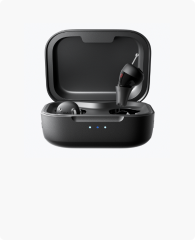
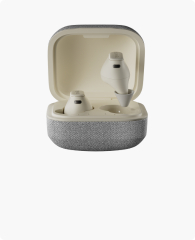
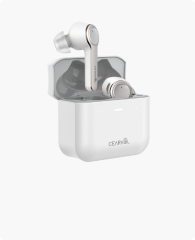

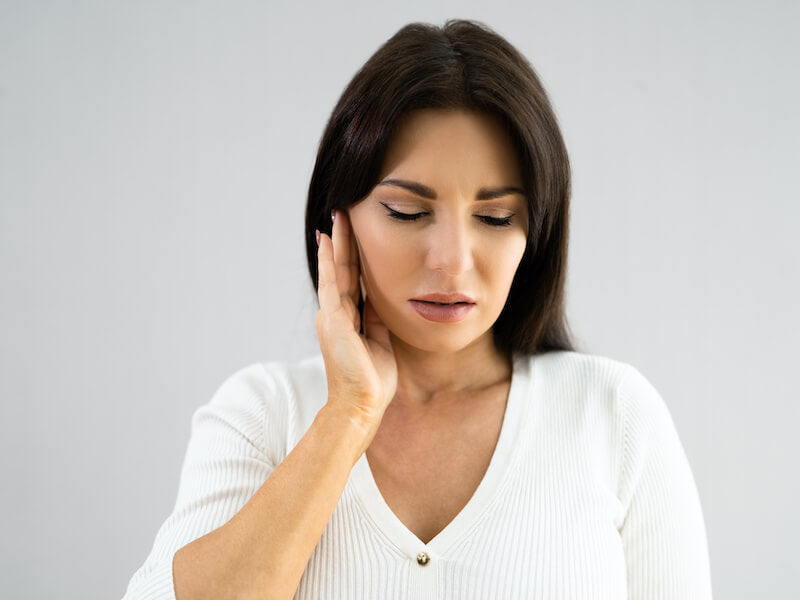


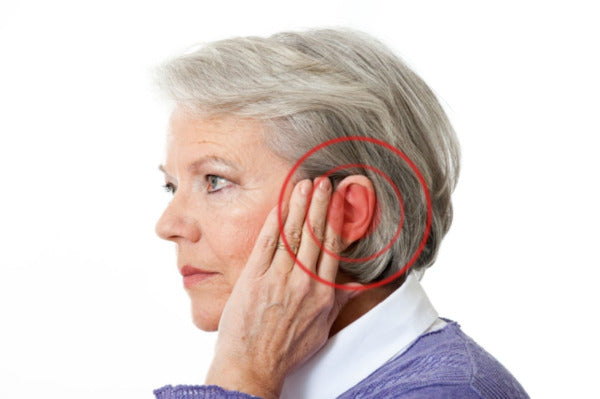
Leave a comment
All comments are moderated before being published.
This site is protected by hCaptcha and the hCaptcha Privacy Policy and Terms of Service apply.